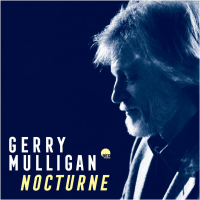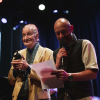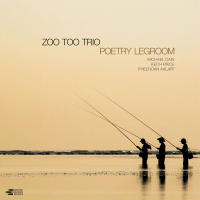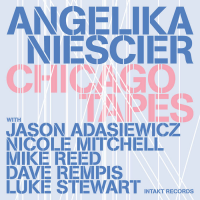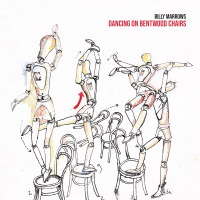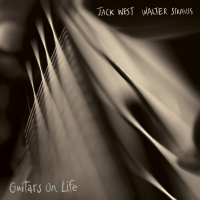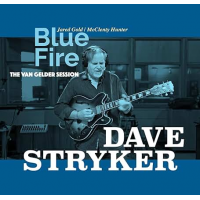Home » Jazz Articles » Album Review » Gerry Mulligan: Nocturne
Gerry Mulligan: Nocturne
The early '50s saw the formation of the Gerry Mulligan Quartet, a pianoless ensemble featuring the distinctive trumpet playing of Chet Baker. This group's innovative instrumentation and understated melodicism provided a refreshing contrast to the rapid-fire virtuosity of bebop. The Mulligan-Baker quartet achieved considerable popularity, particularly on the West Coast, and its sound became synonymous with the burgeoning West Coast jazz scene, influencing a generation of musicians who favored a more relaxed and lyrical approach to improvisation.
Later in his career, Mulligan formed the Concert Jazz Band, a large ensemble renowned for its sophisticated arrangements and dynamic interplay. This band, considered by many to be one of the finest big bands in jazz history, showcased Mulligan's considerable talents as a bandleader. The book for the Concert Jazz Band, largely from Bob Brookmeyer, was ambitious and expansive, exploring a wide range of tonal colors and textures while retaining the melodic clarity.
Although Gerry Mulligan primarily played the baritone saxophone, an instrument often associated with a supporting role in big bands, he demonstrated its remarkable potential for melodic expression and agility. While his tone may not have possessed the deep resonance of Harry Carney's, Mulligan's playing was characterized by a fluid, singing quality that proved the larger horn could be both lyrical and nimble. His improvisations were often thoughtful and inventive, prioritizing melodic development over sheer technical display.
Mulligan's compositional output was as significant as his instrumental prowess. He penned arrangements for leading figures such as Gene Krupa and Stan Kenton, demonstrating his versatility and understanding of diverse musical contexts. Furthermore, he consistently wrote for his own ensembles, tailoring his compositions to the specific strengths and characteristics of his various groups, ranging from small, intimate settings to the larger canvas of the Concert Jazz Band.
This particular collection of recordings serves as a valuable retrospective of Mulligan's multifaceted career, encompassing seminal works from his influential '50s quartet, such as "Walkin' Shoes" and "Line For Lyons," to later masterpieces like "The Flying Scotsman," which premiered by his Concert Jazz Band at a festival in Glasgow. While Mulligan undeniably left an indelible mark on jazz as a player, composer, and arranger, it is perhaps more accurate to describe him as a pivotal figure within the tradition rather than a radical revolutionary. His tribute to Billy Strayhorn and his collaborations with Dizzy Gillespie illustrate his deep connection to the historical lineage of jazz.
"The Flying Scotsman" offers a fascinating glimpse into Mulligan's fascination with the steam railway era. His playing on this piece vividly evokes the power, agility, and speed of the iconic locomotive that inspired it. Harold Danko's piano solo is characterized by its energy and drive, while Dean Johnson's bass playing provides both a subtle foundation and moments of forceful articulation. Ron Vincent's drumming propels the piece forward with rhythmic precision and flair.
The description of some of Mulligan's music as "amiable" is particularly apt for pieces like "Out Back Of The Barn," which exudes a relaxed and good-natured atmosphere, punctuated by playful stop-time breaks. Harold Danko's solo seamlessly complements this mood, unfolding in a characteristically modern yet somewhat countrified manner. Dean Johnson's bass solo benefits from the recording's clarity, allowing the full depth and richness of his tone to be appreciated, and his engaging interplay with Mulligan is a highlight. Ron Vincent's understated drumming maintains the convivial spirit of the track, contributing to a genuine sense of musical camaraderie.
Mulligan also possessed a remarkable ability to convey tenderness and introspection in both his improvisations and compositions, as exemplified by the evocative piece "Curtains." The gentle lilt of the melody provides a springboard for Harold Danko's solo, which sparkles with wit and melodic invention.
As a composer, Mulligan's dominance on this particular album is evident, with all tracks bearing his name with the exceptions of Richard Rodgers and Lorenz Hart's timeless ballad "My Funny Valentine" and Billy Strayhorn's jazz standard "Take The A Train."
While this collection does not claim to be an exhaustive summation of Gerry Mulligan's extensive and varied output, it serves as a potent reminder of his significant and enduring achievements. Moreover, the music contained within transcends fleeting trends, possessing a quality that continues to resonate with listeners and musicians.
Track Listing
CD 1: The Flying Scotsman; Lonesome Boulevard; Curtains; Line for Lyons; My Funny Valentine; A Gift For Dizzy. CD 2: Take The A Train; Out Back Of The Barn; Midas Lives; Song For Strayhorn; Sun On Stairs; Walkin’ Shoes; Rico Apollo.
Personnel
Album information
Title: Nocturne | Year Released: 2025 | Record Label: Red Records
Tags
PREVIOUS / NEXT
Support All About Jazz
 All About Jazz has been a pillar of jazz since 1995, championing it as an art form and, more importantly, supporting the musicians who make it. Our enduring commitment has made "AAJ" one of the most culturally important websites of its kind, read by hundreds of thousands of fans, musicians and industry figures every month.
All About Jazz has been a pillar of jazz since 1995, championing it as an art form and, more importantly, supporting the musicians who make it. Our enduring commitment has made "AAJ" one of the most culturally important websites of its kind, read by hundreds of thousands of fans, musicians and industry figures every month.


